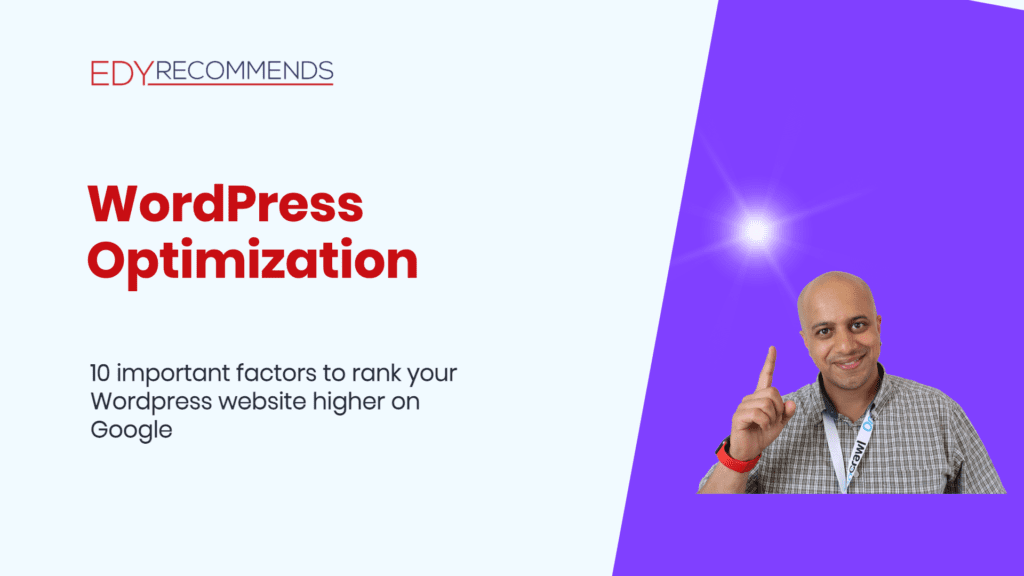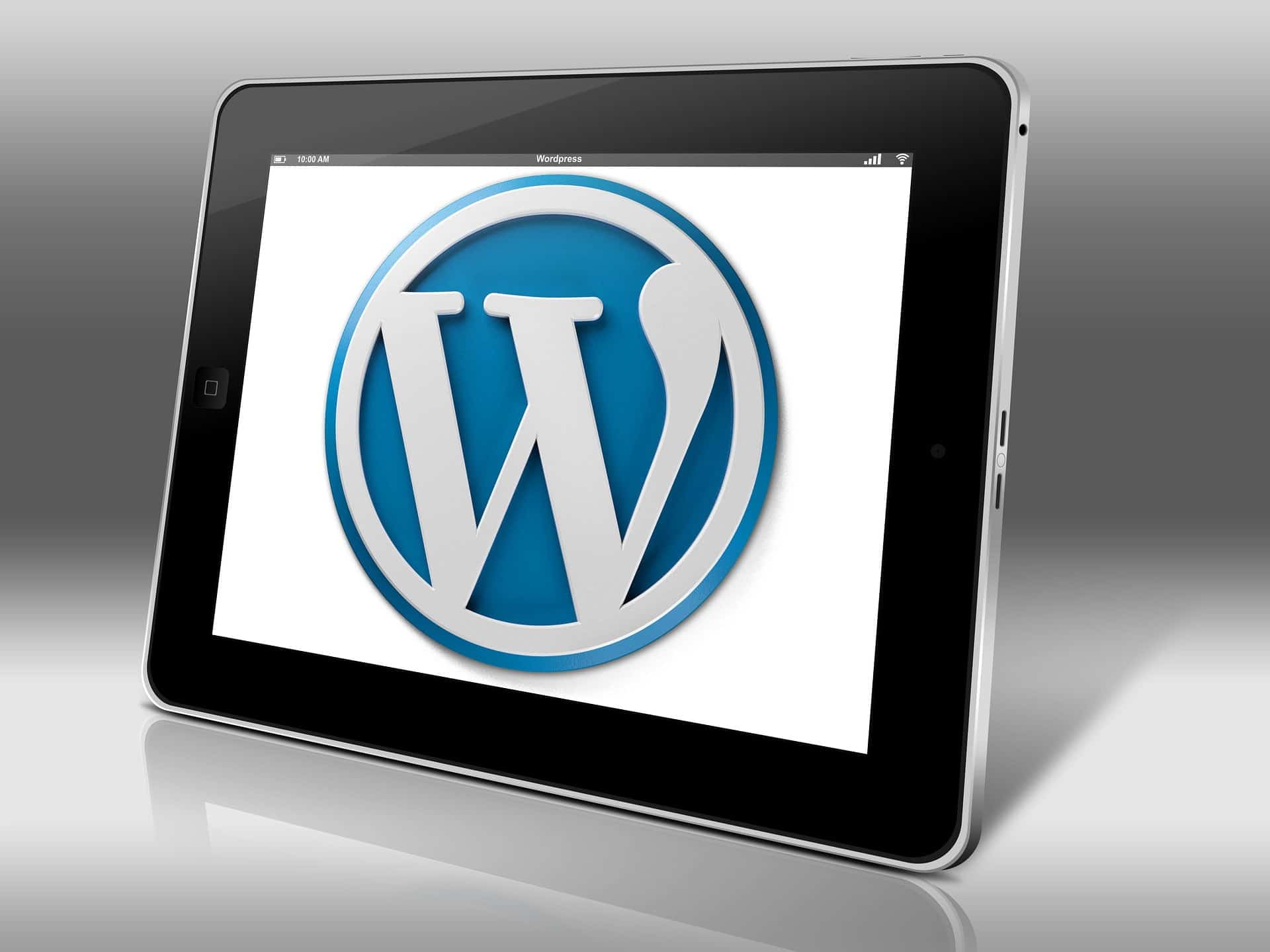By Edy, IT Veteran & WordPress Blogger
What is WordPress optimization?

WordPress optimization is a process of carrying out techniques and activities that make the site more appealing to search engines. It includes on-page optimization, off-page optimization, social media marketing. Search engine crawlers visit websites like yours to determine if they are in “good shape” or not through website optimization.
For a business to succeed online, WordPress optimization can be an integral part of its promotional strategy. So it’s very much worth digging into these things in greater depth! Search engine crawlers come back regularly to index your WordPress website and rank your site among other competition for a given keyword/topic. Good content might sit there untouched, waiting for readers without optimization.
A cursory review must follow the basics of what makes good website optimization on your part.
Following is a comprehensive guide to search engine optimization for WordPress websites:
1. Site Structure, Navigation, and Internal Linking
Your internal links should be relevant and logical to help users navigate your site quickly. Visitors who land on a page depending upon the keywords they are searching for may expect to find links back to the homepage or landing pages that provide more information on the subject matter. Internal linking your site is good for user experience, but it also provides a page rank benefit that Google seems to favor these days.
2. Keywords and On-Page WordPress Optimization
It would help to use targeted key phrases in titles, headings, meta tags, etc., while optimizing your WordPress website. Each page should have at least one targeted keyword, but preferably no more than 3 per page. Google tends to discount sites with too many keywords being used throughout its pages – though this appears to be a gray area right now with conflicting information from different sources in recent years.
3. Content and Quality Score
Your website content should be relevant to its topics and the keywords you target. Write it to provide the reader with quality and grammatically correct English language. It would be best to remember that Google penalizes sites for overuse of adverbs and adjectives, poor writing, lack of clarity or inaccuracy, duplicated or spun content, etc. Your site must also have a mobile-optimized version that is easy on the eye and may include an alternate page layout specially designed to fit smaller screens of tablets & smartphones.
4. Page Loading Speed
Website loading speed is one of the major factors determining your ranking in search engines. Google now uses page loading speed as one of the factors for determining its rankings of websites in many countries, so it’s essential not only for user experience and conversions but also SEO! Any improvement to make the site load faster on any device is always a plus point.
5. Page Size
It’s better to have fewer large pages than having multiple small pages with lesser information on each of them. Hardly anyone clicks on a link anymore once the page goes beyond 3 megabytes without giving much time to load completely, especially when surfing over mobile connections – though this is less true for those using a WiFi connection or high-speed broadband at home or work. Larger Pages usually take more time to load, and Google penalizes sites with large pages (over two MB) as they take a long time to load.
6. Authority & Trust
Building trust in your website is a significant factor that helps people make decisions about doing business or making a purchase online. You need to ensure that the links on your site are relevant, contextual, and natural so that you don’t seem like you’re spamming your links throughout the web just for SEO benefit at all! Authority and Trust are being achieved by adding quality content (not bulked-up pages with AdSense-filled texts), building backlinks from high authority websites, social media shares, etc.
7. Social Media Signals
Social signals can help search engine crawlers find your site more quickly, especially if they are tagged with your keywords. Tagging also allows other users to find your website more easily without even previously knowing about your site’s existence. Since Google is now focusing on social signals as one of many factors to determine rankings, it’s important to have a presence on all major social media platforms such as Facebook, Twitter, etc.
8. Interlinking and On-Site Social Profiles
These days, each website page should have links to its relevant pages internally throughout the site. Most importantly, have links back to the homepage or landing pages you are targeting for specific keywords or key phrases that visitors may be searching for in search engines while looking for information regarding your product or service offering. These links act as vote counts towards your site relevancy, Trust, and authority to search engine crawlers and help overcome the so-called “filter bubble” that Google has created for some of its users.
9. Website Design
The design may not directly factor in determining your website’s ranking but plays a vital role in building Trust between visitors and websites. You should keep your design simple yet professional – something that tells people about your professionalism while looking less spammy at the same time!
10. Internal Linking
Internal links connect pages with related content within the internal structure of your website, which can help improve user experience and help search engine crawlers crawl through your HTML pages more efficiently. At the same time, you need to ensure that the links don’t look like spammy links coming from a website that is only trying to get search engine signals at all.
Takeaways
If you’re wondering what WordPress website optimization is, this post should have answered your questions. You can use these ten different factors to help improve the speed of your site on any device and create a more enjoyable user experience that helps Google rank you higher in its search engine results pages (SERPS).
Remember always write for the reader and not for the search engine. However, following the ten action points will undoubtedly help improve the readability of your website content as well. And as a Bonus: According to Google, to bold your keyword one time in the text is absolutely fine and will help Google understand what your keyword is.
Now that you know more about WordPress optimization apply these tips to your website to improve your ranking and visibility online.
Please let me know in the comment below how it goes.
IT Veteran & WordPress Blogger
Hi, I'm Edy. With over 30 years in the IT industry, I've tackled numerous tech challenges. As a solopreneur, I write to address gaps I find in my work and online. My mission? To provide clear, step-by-step tech guidance and improve the quality of information on the web. Passionate about WordPress and SEO, I explore ways to boost website performance and search visibility. I also recommend top plugins and themes to help you create stunning, high-performing WordPress sites. Join me for insights, tips, and recommendations to enhance your WordPress experience
Enjoying the content?


